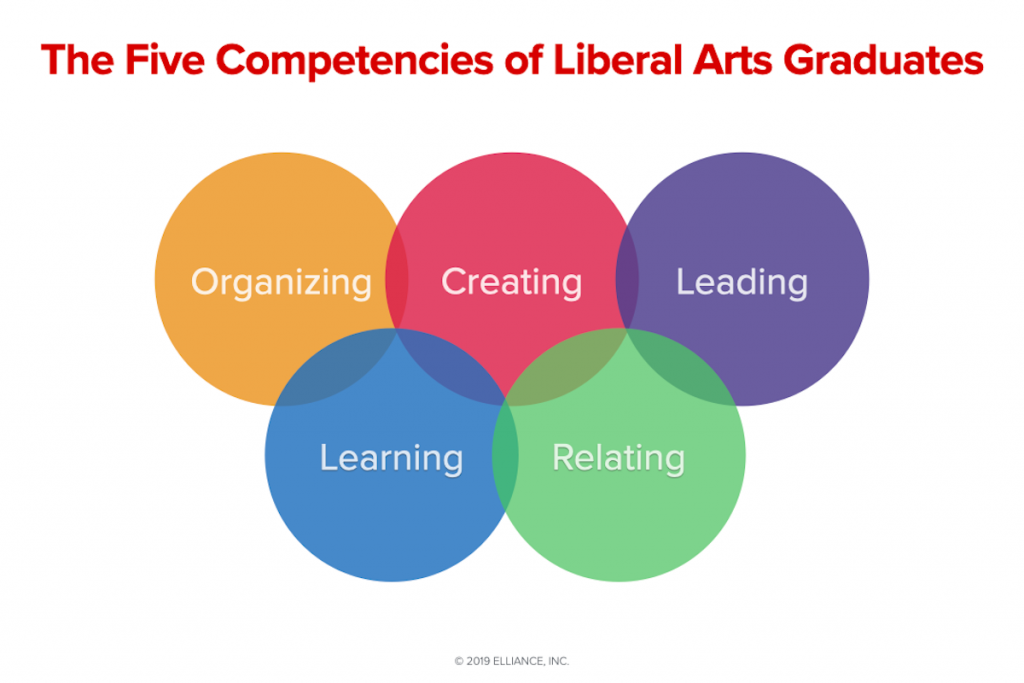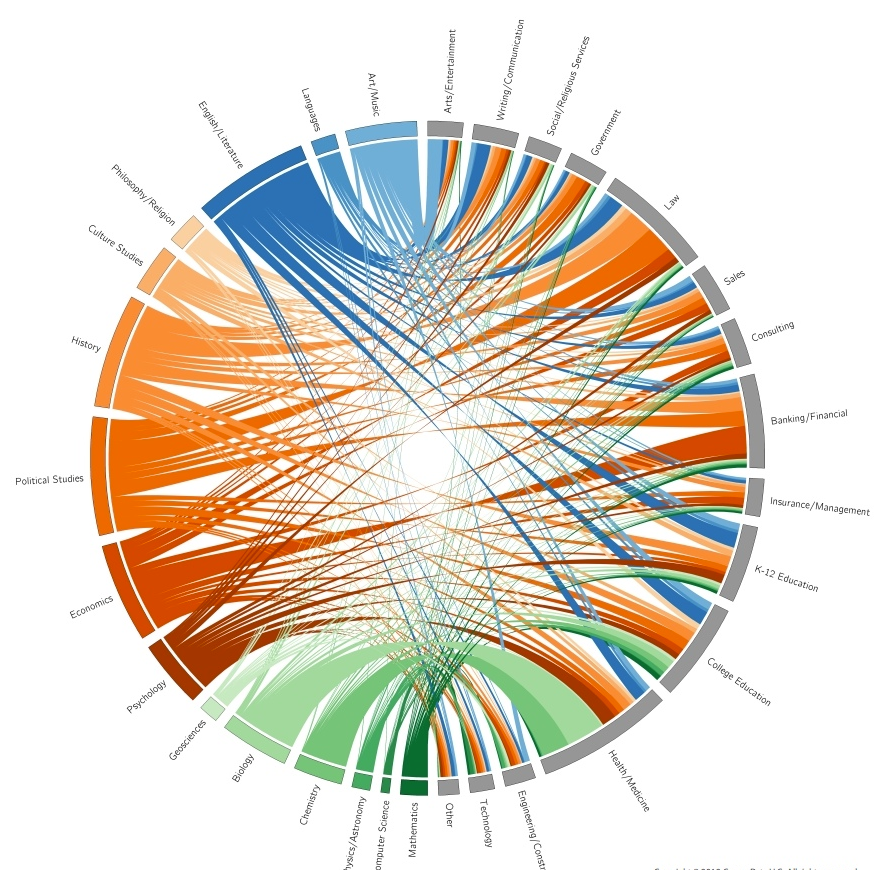| Apr 6, 2019
Five Competencies of Liberal Arts Graduates

Although the future of work has become increasingly technical and vocational, the future of innovation and leadership remains solidly in the hands of people who majored or minored in liberal arts and humanities. There is a good reason for this paradox: liberal arts teach people how to learn, think, create, communicate, connect the dots, handle ambiguity, and adapt – qualities that are vital for introducing change and causing disruption.
Listed below are, in my view, the five key habits that liberal arts colleges cultivate in their graduates:
Learning
Liberal arts graduates become anthropologists and life-long learners because they are trained to constantly gather data (scan and research) and analyze it. These traits are critical for learning professionals of today since, in every profession, the ground looks completely different every 3-5 years.
Relating
By consuming myriad of variations of the human condition, they begin to better understand fellow human beings, cultivate empathy for others, and see multiple perspectives.
Organizing/Thinking
By continually prioritizing and synthesizing information, liberal arts graduates become clear thinkers, natural connectors and good communicators – vital skills for increasingly diverse work environments.
Creating/Building
By perpetually consuming great productions and performances, liberal arts graduates develop the essential skills to instinctively curate, orchestrate, choreograph and mythologize new creations. No wonder so many of them become storytellers, experience designers, scientists and innovators.
Leading
As Shakespeare said, “some are born great, some achieve greatness and some have greatness thrust upon them”. Liberal arts education prepares the mind to accept the mantle of greatness, whether one is born, or aspires to be an entrepreneur, responsible leader, engaged citizen, thought leader or change maker.
These soft skills partially explain why many parents question the value of a liberal arts degree. In the short run, the technical and vocational degrees win the compensation race, but they also plateau earlier; however, in the second and third stage of career development, liberal arts majors begin to outperform the technical and vocational majors. Studies also show that people who enter the professions directly earn less than those who get there indirectly through the liberal arts route.
Most liberal arts colleges have failed to construct a cogent argument about the value of liberal arts. However, a few schools are beginning to make bold efforts to articulate the value. One noteworthy example of such an effort was completed by Satyan Devadoss, then a Professor of Mathematics at William College, who mapped the career paths of its 15,600 liberal arts alumni to show that they go on to successful careers in all walks of life. It’s instructive to see how their data maps out by visiting this website.
What additional competencies would you like to add to my list? What interesting efforts have you seen that articulate the value of liberal arts?

